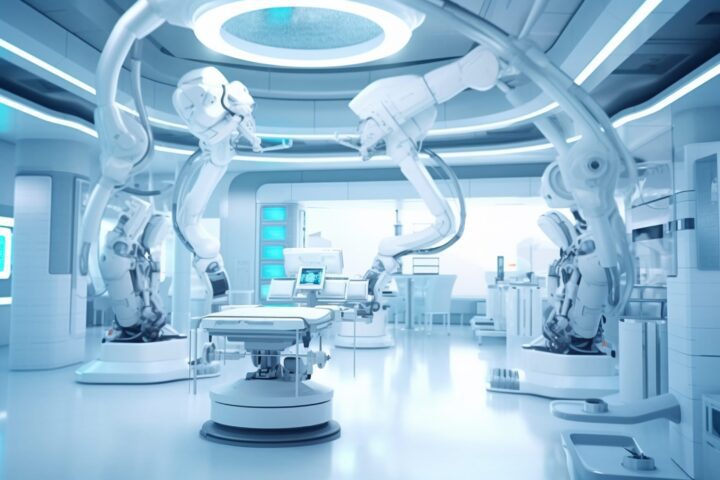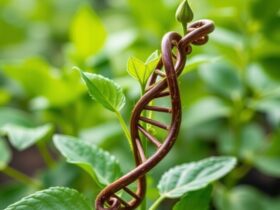Biotechnology has emerged as a decisive factor in the future of food and health. This new field is revolutionising the creation and development of nutraceuticals and functional foods, enhancing their nutritive value and health benefits. This article explores some of the exciting applications of biotechnology in this area.
Nutraceuticals and Functional Foods—What Are They?
Nutraceutical and functional foods are more than just ordinary groceries. These food items are designed to provide additional health benefits beyond their basic nutritional value.
Nutraceuticals
Nutraceuticals are isolated products derived from food sources that offer extra health benefits. Many such products prevent or treat disease conditions and can be considered concentrated sources of beneficial compounds extracted from foods.
Functional Foods
Functional foods contain specific ingredients added to provide targeted health benefits. They look and appear like regular food but with an added health advantage.
Biotechnology in Food
Biotechnology uses life forms or components of life to produce a product or effect a change in it. It provides scientists with a powerful toolkit to work with the building blocks of life. In the context of food, this means:
- Improved crop varieties with higher nutritional content or pest resistance.
- Production of new ingredients like proteins and vitamins.
- Value addition to traditional foods, enhancing their nutritional profile.
Biotechnology Impacts on Nutraceuticals
Biotechnology significantly impacts the nutraceuticals industry in several key ways:
1. Improved Bioavailability
Bioavailability refers to the rate at which our bodies absorb nutrients. Biotechnology enhances bioavailability through:
- Form Changes: Modifying organic molecules to make them more easily absorbed. For example, enzymes can break down complex molecules into smaller, more absorbable units.
- Encapsulation: protecting sensitive nutrients within a shield, allowing them to survive the digestive process and reach their target site.
2. New Nutraceuticals Production
Biotechnology enables the production of entirely new nutraceuticals. Beneficial compounds like vitamins, antioxidants, and enzymes can be biosynthesised by microorganisms (e.g., bacteria or yeast) at a significantly lower cost. This allows for the production of large quantities for both scientific research and commercial use. Genetic manipulation of plants or microorganisms can also be used to produce nutraceuticals. For example, scientists can develop plants with increased antioxidant levels.
3. Targeted Delivery
Biotechnology facilitates the targeted delivery of nutraceuticals to specific sites in the body. Nanotechnology, using nano-sized particles as vectors, can transport nutraceuticals to target cells or tissues, improving their efficacy.
Role of Biotechnology on Functional Foods
Biotechnology significantly influences the development of functional foods.
1. Development of Fortified Foods
Biotechnology can enhance the levels of bioactive compounds in everyday foods. Examples include:
- Vitamin D Fortification: Adding vitamin D to milk, cereals, and other foods.
- Omega-3 Fatty Acid Addition: Incorporating these healthy oils into yoghurts and bread.
2. Production of Probiotic and Prebiotic Foods
- Probiotics: These beneficial bacteria reside in our gut and aid digestion. Biotechnology selects and cultures specific probiotic strains for addition to foods like yoghurts and fermented beverages.
- Prebiotics: These are carbohydrates that feed the beneficial bacteria in our intestines. Biotechnology enables the production and addition of specific prebiotics to functional foods.
3. Food Texture and Flavor
Biotechnology can improve the texture and flavour of functional foods. Enzymes can enhance the texture of baked goods and dairy products. Biotechnology also plays a role in developing natural flavourings that improve the taste of food products.
Examples of Biotechnology in Action
- Golden Rice: This genetically modified rice variety contains high levels of beta-carotene, a precursor to vitamin A. It is a prime example of biotechnology’s potential to combat vitamin deficiency in developing countries.
- Omega-3 Fortified Foods: Omega-3 fatty acids derived from microalgae are used to fortify foods like yoghurt and bread, providing a valuable source of these essential fatty acids, even for vegetarians.
- Probiotic Yoghurt: This yoghurt is specifically formulated to contain beneficial bacteria that promote gut health.
The Future of Biotechnology in Food
The future of nutraceuticals and functional foods is bright. Personalised nutrition, based on an individual’s genetic makeup, is becoming increasingly feasible. Further research into beneficial compounds and delivery methods will enhance nutraceutical development. Sustainable food production practices will allow for increased food production with reduced resource consumption and environmental impact.
Challenges and Considerations
Despite the promise of biotechnology, several challenges and considerations must be addressed:
- Safety: Rigorous testing is essential to ensure the safety of genetically modified foods and other biotechnology products.
- Ethical Concerns: Ethical debates surround the genetic engineering of food.
- Consumer Resistance: Public apprehension about biotechnology can hinder its development.
Conclusion
Nutraceuticals and functional foods have the potential to revolutionise human health and well-being. Continued research and technological advancements will drive further progress in this field. By making informed choices about food, individuals can contribute to their own health and well-being. Knowledge-based approaches to nutrition will empower individuals to make healthier choices.


































Leave a Review